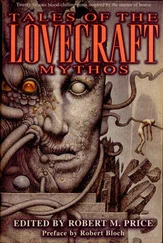Robert Pirsig - Lila. An Inquiry Into Morals
Здесь есть возможность читать онлайн «Robert Pirsig - Lila. An Inquiry Into Morals» весь текст электронной книги совершенно бесплатно (целиком полную версию без сокращений). В некоторых случаях можно слушать аудио, скачать через торрент в формате fb2 и присутствует краткое содержание. Жанр: Современная проза, на английском языке. Описание произведения, (предисловие) а так же отзывы посетителей доступны на портале библиотеки ЛибКат.
- Название:Lila. An Inquiry Into Morals
- Автор:
- Жанр:
- Год:неизвестен
- ISBN:нет данных
- Рейтинг книги:3 / 5. Голосов: 1
-
Избранное:Добавить в избранное
- Отзывы:
-
Ваша оценка:
- 60
- 1
- 2
- 3
- 4
- 5
Lila. An Inquiry Into Morals: краткое содержание, описание и аннотация
Предлагаем к чтению аннотацию, описание, краткое содержание или предисловие (зависит от того, что написал сам автор книги «Lila. An Inquiry Into Morals»). Если вы не нашли необходимую информацию о книге — напишите в комментариях, мы постараемся отыскать её.
Lila. An Inquiry Into Morals — читать онлайн бесплатно полную книгу (весь текст) целиком
Ниже представлен текст книги, разбитый по страницам. Система сохранения места последней прочитанной страницы, позволяет с удобством читать онлайн бесплатно книгу «Lila. An Inquiry Into Morals», без необходимости каждый раз заново искать на чём Вы остановились. Поставьте закладку, и сможете в любой момент перейти на страницу, на которой закончили чтение.
Интервал:
Закладка:
Sometimes the contrary anti-static drive becomes a static pattern of its own. This contrary stuff can become a tiger-ride where you can’t get off and you have to keep riding and riding until the tiger finally throws you and devours you. The degenerative contrarian stuff usually goes that way. Drugs, illicit sex, alcohol and the like.
But sometimes it’s Dynamic, where your whole being senses that the static situation is an enemy of life itself. That’s what drives the really creative people — the artists, composers, revolutionaries and the like — the feeling that if they don’t break out of this jailhouse somebody has built around them, they’re going to die.
But they’re not being contrary in a way that is just decadent. They’re way too energetic and aggressive to be decadent. They’re fighting for some kind of Dynamic freedom from the static patterns. But the Dynamic freedom they’re righting for is a kind of morality too. And it’s a highly important part of the overall moral process. It’s often confused with degeneracy but it’s actually a form of moral regeneration. Without its continual refreshment static patterns would simply die of old age.
When you see Lila that way it’s possible to interpret her current situation as much more significant than psychology would suggest. If she seems to be running from something, that could be the static patterns of her own life she’s running from. But a Metaphysics of Quality adds the possibility that she’s running toward something too. It allows a hypothesis that if this running is stopped, if any static patterns claim her — if either her own insane patterns claim her or the static cultural patterns she is shutting out and running from claim her — then she loses.
What he thought was that in addition to the usual solutions to insanity — stay locked up or learn to conform — there was a third one, to reject all movies, private and cultural, and head for Dynamic Quality itself, which is no movie at all.
If you compare the levels of static patterns that compose a human being to the ecology of a forest, and if you see the different patterns sometimes in competition with each other, sometimes in symbiotic support of each other, but always in a kind of tension that will shift one way or the other, depending on evolving circumstances, then you can also see that evolution doesn’t take place only within societies, it takes place within individuals too. It’s possible to see Lila as something much greater than a customary sociological or anthropological description would have her be. Lila then becomes a complex ecology of patterns moving toward Dynamic Quality. Lila individually, herself, is in an evolutionary battle against the static patterns of her own life.
That’s why the absence of suffering last night seemed so ominous and her change to what looked like suffering today gave Phædrus a feeling she was getting better. If you eliminate suffering from this world you eliminate life. There’s no evolution. Those species that don’t suffer don’t survive. Suffering is the negative face of the Quality that drives the whole process. All these battles between patterns of evolution go on within suffering individuals like Lila.
And Lila’s battle is everybody’s battle, you know?
Sometimes the insane and the contrarians and the ones who are the closest to suicide are the most valuable people society has. They may be precursors of social change. They’ve taken the burdens of the culture onto themselves, and in their struggle to solve their own problems they’re solving problems for the culture as well.
So the third possibility that Phædrus was hoping for was that by some miracle of understanding Lila could avoid all the patterns, her own and the culture’s, see the Dynamic Quality she’s working toward and then come back and handle all this mess without being destroyed by it. The question is whether she’s going to work through whatever it is that makes the defense necessary or whether she is going to work around it. If she works through it she’ll come out at a Dynamic solution. If she works around it she’ll just head back to the old karmic cycles of pain and temporary relief.
Apparently whatever caused that engine overheating was gone. He sure couldn’t reproduce it now. He shut off the engine and the boat eased forward toward the anchor.
The sun across the water was getting on to the end of the afternoon and he began to get a slightly depressed feeling. Not the best of days. He noticed a seagull pick up an oyster or a clam or something from the sand on the shore and fly up into the sky and then drop it. Another seagull was homing in and diving to take it away from him. Pretty soon they set up a real screeching. He watched them for a while. Their fighting depressed him too.
He noticed on one of the other boats at anchor there was someone aboard. If he stayed up on deck they might start waving and want to socialize. Not something he wanted to do. He picked up his stuff and went below.
It had been a long week. God, what a week! He needed to get back to the old life. That whole city and all its karmic problems, and now on top of it Lila and all her karmic problems, were just too much. Maybe he should just take it easy for a while.
On the pilot berth was the tote bag with all the mail. At last he could get started with that, a good diversion. He opened up the leaf of the dining table, put the tote bag on top of it and took out the top bunch of letters and spread them out.
For the rest of the afternoon he sat with his feet propped up on the table, reading the letters, smiling at them, frowning at them, chuckling at them and answering each one that seemed to call for it, telling them no when they wanted something with as much grace as possible. He felt like Ann Landers.
He heard Lila stirring once or twice. Once she got up and used the head. She wasn’t that catatonic. This quietness and boredom of a boat at anchor was the best cure in the world for catatonia.
By the time it was dark he began to feel stale at answering mail. The day was done. It was time to relax. The light breeze of the day was now completely gone, and except for a slight rock of the boat now and then everything was still. What a blessing.
He took the kerosene lamp from its gimbaled mounting, lit it and placed it near the galley sink. He made another meal out of the left-over food from Nyack and thought about Lila some more, but didn’t reach any conclusion except the one he had already reached: there was nothing to do but wait.
When he brought in Lila’s food he saw the plate and glass he’d brought in earlier were empty. He tried again to talk to her but she still didn’t answer.
He felt it getting colder now that the sun was down. Rather than start up the heater tonight he thought he’d just get into the sleeping bag early. It had been a long day. Maybe make a few slips on these new books on William James.
These books were biography. He’d read quite a bit of James' philosophy. Now he wanted to get into some of his biography to put some perspective on it.
He wanted particularly to see how much actual evidence there was for the statement that James' whole purpose was to unite science and religion. That claim had turned him against James years ago, and he didn’t like it any better now. When you start out with an axe like that to grind, it’s almost guaranteed that you will conclude with something false. The statement seemed more like some philosophological simplification written by someone with a weak understanding of what philosophy is for. To put philosophy in the service of any social organization or any dogma is immoral. It’s a lower form of evolution trying to devour a higher one.
Phædrus removed the bag of mail to the pilot berth, then placed the kerosene lamp on top of the icebox where it would be over his shoulder and he could read by it, then sat down and began to read.
Читать дальшеИнтервал:
Закладка:
Похожие книги на «Lila. An Inquiry Into Morals»
Представляем Вашему вниманию похожие книги на «Lila. An Inquiry Into Morals» списком для выбора. Мы отобрали схожую по названию и смыслу литературу в надежде предоставить читателям больше вариантов отыскать новые, интересные, ещё непрочитанные произведения.
Обсуждение, отзывы о книге «Lila. An Inquiry Into Morals» и просто собственные мнения читателей. Оставьте ваши комментарии, напишите, что Вы думаете о произведении, его смысле или главных героях. Укажите что конкретно понравилось, а что нет, и почему Вы так считаете.











